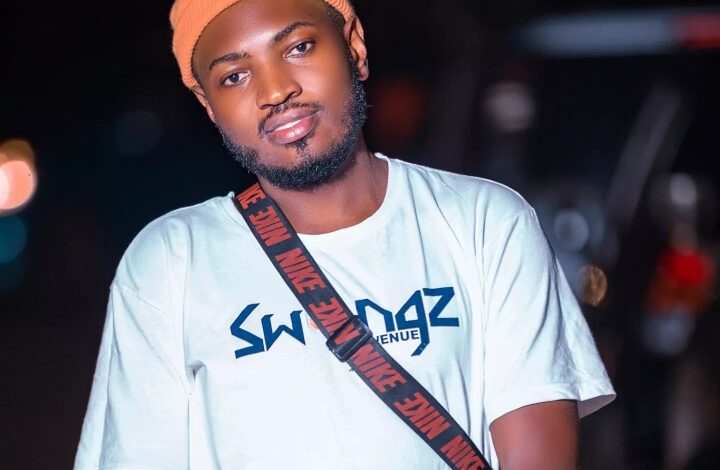Record labels are often described as “glorified banks,” with label contracts working like loans with really bad terms. This is partly true, but there’s a little more to it. In theory, at least, label deals also give artists access to a team of professionals that can do things like branding, marketing, radio promotion, press pushes, website maintenance, social media management, and so on.
If you’ve been running your own music business for long, you can see how attractive that can be, even if you don’t want fame. You mean someone else will do the 50 hours per week of work I have to do that’s not even playing music? Sign me up!
In essence, a label provides a service: promotion, marketing, distribution, and production. But also, they loan you the money to pay for it. Sounds great!
Uganda`s music Industry right now is experiencing many changes among the performers and worth to be noted is the way musicians are moving on from former managements or record labels to creating their own management structures.
Zulitums lovers were shocked to learn that the producer cum song writer and musician had decided not to renew his contract with Blaq Avay Records because they had rejected his proposal of increasing his earnings.

Source has revealed to BFE Media that Andre also quit at Black market records and started his Daddy records and that Mudra left DCM empire and chose to focus on his Mudra Nation.
Lets stretch it back a bit
In June 2019, news of Swangz Avenue artiste Veronica Luggya alias Vinka’s signing to Sony Music Africa hit the web. Much as the news was met with mixed reactions – but more of positivity, it was clear many did not really understand what it meant.
Although many recording contracts indicate that artists will release this or that number of albums, some artists do not get to release anything for even five years – it is not even guaranteed overnight world stardom.
Most of such labels have got used to particular markets and as they venture into Africa, they tend to market Africa sounding the way they know how. This means that even when an artist like Vinka, Keko or Nigeria’s Davido is signed, they may want to package them in a way they believe will work for the market in which they intend to sell you.
This as a result, means that scheduling music, studio time or releases, is different. They will not want you to work with producers or even collaborate with artists they may not approve of and one cannot release a single or an album, in fact, they have the power to release the artist’s music.
While recently appearing for an interview with local journalist and vlogger Kakalamu, I noted that deals such as Sony come with money and commodification.
“When a Ugandan artist like Vinka or Keko goes to Sony like they did, there will be a desire to structure a sound that goes across markets. If Sony does that, we should forget about our artists we know.”

I, however, said for the time some of these labels have been on the continent, they have learnt a few things about the market and thus, stylistically, we could keep bits of our Ugandan artists we grew to love.
Swangz Avenue boss Benon Mugumbya, in an interview he made when Vinca signed to Sony, he however made a few things clear.
He said, besides a number of singles, the artist was scheduled to release every month until December, much of Vinka’s business will change – she will not be releasing music frequently.
When rapper Keko worked with Sony Music, her first release Let Me Go came in handy, maintaining parts of her, but introducing her to electronic.
But that was not all. The releases were inconsistent and veering further from what people had fallen in love with. Songs such as See Ya, Fly Solo or Naughty did not even come close to what Make You Dance or How We Do It had got without a Sony deal.
Three-and-a-half years down the road, Ugandans(who are not keen enough to know and follow) almost forgot Keko existed and it was not long before she took to Twitter: “It has been three and a half years at this label and there are no gigs, no cheques, no publishing, enlighten me on that. What should I do?”
Does Africa need these labels?
According to distractify.com, an entertainment and music website, among the thousands of artists signed to music labels, only 99 per cent get to release their first album and 0.2 per cent only survive being dropped before releasing their first album.
For instance, some will spend months working on albums but the release gets extended for years and eventually cancelled altogether and later getting dropped.
Many Ugandans have blamed Keko’s unprecedented stunted career on her Sony deal. They argue that the plan to change a rapper into a singer, especially an electronic music one, drove her away from the crowd that had appreciated her Afro-fusion rap style.
But it is not just Ugandans that are accusing a big label of murdering a career. Over the years, stories have been written of how Kanye West and GOOD Music ended D’banj’s relevance.

For instance, for the years he was signed to the label, his biggest song was Oliver Twist, which had been produced by his former label, Mo Hits label producer Don Jazzy. Between 2011 and 2016 when he left the label, D’banj did not record an album nor a solo project, as one Nigerian journalist puts it. Besides giving him a chain, a remix and an appearance in the music video, GOOD Music took so much from D’banj than it offered.
However, Swangz Avenue’s founder Julius Kyazze strongly disagrees with everyone that says Sony Music or any other international music label fails artistes because he believes they have propelled more artists to greater heights.
“You cannot say Wizkid or Davido were failed, can you?” Kyazze once argued.
While talking to Nigerian paper, The Guardian, Davido noted that he did not want to sign to Sony because he did not need them.
“I was doing tours all over Africa with 50,000 to 80,000, people, so I was like why am I signing the deal?” he said.
Why labels fail in Africa
A telecom company employee, who prefered anonymity, says Sony, like all giants coming to Africa, operate best in America and Europe where there are structures. “In Africa, things work differently, the industry is not mapped or organised and people succeed in it that way.”
They said at the moment, players such as Sony or Tidal are trying to organise a market that has sustained itself without them, “and sadly, they are doing this by eliminating local stakeholders, forgetting that each African market has people that understand it best.”


